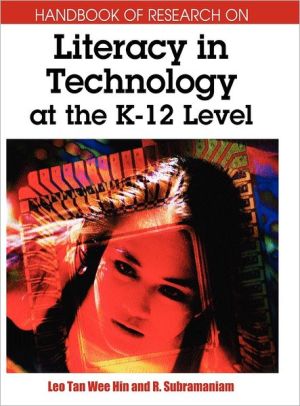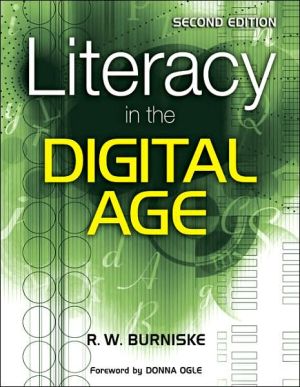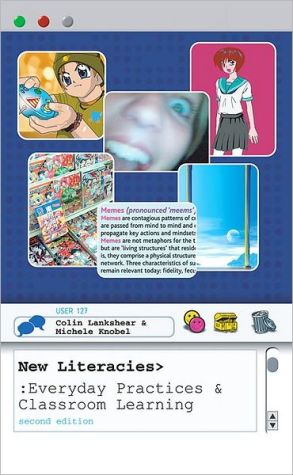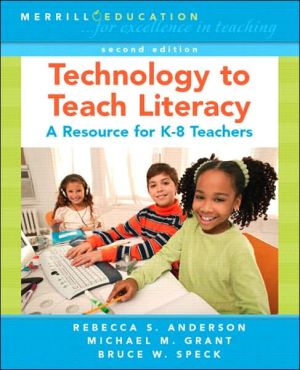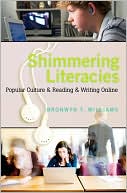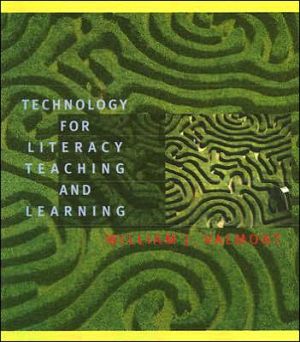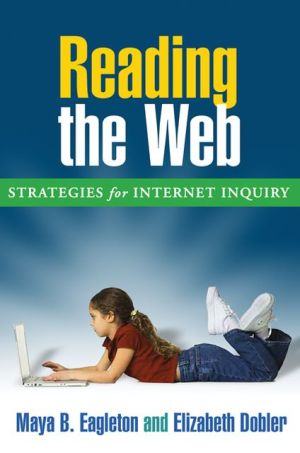Handbook of Research on Literacy in Technology at the K-12 Level/Leo Tan Wee Hin and R. Subramaniam, Editors
The Handbook of Research on Literacy in Technology at the K-12 Level is the first reference work to provide comprehensive coverage of the issues, methods, and theories that define the converging worlds of literacy and technology at the pre-collegiate level. Over 50 international experts have combined their research and practical experience into 35 all-inclusive chapters, redefining the way teaching and learning is dispensed. This authoritative handbook details the needs of teachers,...
Search in google:
The Handbook of Research on Literacy in Technology at the K-12 Level is the first reference work to provide comprehensive coverage of the issues, methods, and theories that define the converging worlds of literacy and technology at the pre-collegiate level.
Ch. INew paradigm of learning and teaching in a networked environment : implications for ICT literacy1Ch. IITechnologies challenging literacy : hypertext, community building, reflection, and critical literacy21Ch. IIITechnological literacy, perspectives, standards, and skills in the USA34Ch. IVGlobalization, at-risk students, and the reconceptualization of technological literacy55Ch. VICT in schools : what is of educational value?73Ch. VIWeb-based technologies, technology literacy, and learning94Ch. VIINew media pathways : navigating the links between home, school, and the workplace118Ch. VIIIResponsible technologies and literacy : ethical and legal issues137Ch. IXInternet chatrooms : e-space for youth of the risk society158Ch. XRe-schooling and information communication technology : a case study of Ireland176Ch. XITransforming the K-12 classroom with ICT : recognizing and engaging new configurations of student learning195Ch. XIIThe complexities of measuring technological literacy217Ch. XIIISystemic innovations and the role of change-technology : issues of sustainbility and generalizability234Ch. XIVDigital video in the K-12 classroom : a new tool for learning247Ch. XVTechnology as a classroom tool : learning with laptop computers271Ch. XVITapping into digital literacy : handheld computers in the K-12 classroom287Ch. XVIIDigital literacy and the use of wireless portable computers, planners, and cell phones for K-12 education308Ch. XVIIIUsing WebQuests to support the development of digital literacy and other essential skills at the K-12 level322Ch. XIXLet them blog : using Weblogs to advance literacy in the K-12 classroom337Ch. XXInformation problem-solving using the Internet357Ch. XXIHow to teach using today's technology : matching the teaching strategy to e-learning approach372Ch. XXIIIntegrating computer literacy into mathematics instruction394Ch. XXIIITeaching and learning with tablet PCs410Ch. XXIVUsing technology to create children's books for students by students425Ch. XXVElectronic portfolios and education : a different way to assess academic success437Ch. XXVITeachers and technology : engaging pedagogy and practice452Ch. XXVIILiteracy in K-12 teacher education : the case study of a multimedia resource469Ch. XXVIIIDemystifying constructivism : the role for the teacher in new technology exploiting learning situations493Ch. XXIXK-12 educators as instructional designers515Ch. XXXCreating a virtual literacy community between high school and university students531Ch. XXXIOnline learning communities : enhancing learning in the K-12 setting552Ch. XXXIIKnowledge management, communities of practice, and the role of technology : lessons learned from the past and implications for the future573Ch. XXXIIIThe emerging use of e-learning environments in K-12 education : implications for school decision makers586Ch. XXXIVA socio-technical analysis of factors affecting the integration of ICT in primary and secondary education604Ch. XXXVTeaching English as a second language with technology : making appropriate pedagogical choices626
